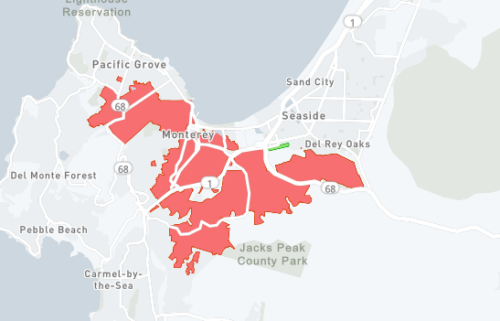Tons of romaine lettuce dumped at Monterey County landfill
Following the romaine lettuce recall, more than 300 tons of romaine lettuce has been dumped at the Monterey County Regional Waste Management District.
Officials there say an estimated 325 tons of romaine has been brought in in the past two weeks.
This stemmed from an E. Coli outbreak that sickened more than 40 people in 12 different states. FDA officials say it started somewhere in the Tri Counties.
“This is a huge economic loss for our local farms and i have talked with some of the drivers, not all
of it is being delivered here to landfill. If it hasn’t been packaged yet, they’re towing it back through the fields so we’re only seeing a small percentage of the waste,” says Angela Goebel, Public Education and Outreach Specialist at the Monterey County Regional Waste Management District.
About 200 of those tons has gone to compost and 125 tons to the landfill.
Lettuce waste usually all goes to the compost, but since much of the romaine lettuce is already packaged that’s why it’s brought to the landfill.
While that is not ideal, Goebel says it’s not going to complete waste, “”we have pipes throughout our landfill that are collecting methane gas so that goes towards energy production which goes to the grid or Monterey bay community power, so we are producing about 5 mega watts of electricity which
powers about 3,000 homes. While the material from lettuce or garbage is land-filled and were not able to recover the material, we are able to capture energy.”
To help prevent massive waste in the future, the United Fresh Produce Associations says farmers can voluntarily label their produce.
The FDA does not mandate romaine to be labeled, but the CDC is asking consumers to check labels on lettuce before they eat or purchase it. Therefore, labeling lettuce will help customers determine if it is safe to eat.
Goebel says she could see more farmers labeling their products soon, “it looks like packaging with labels to connecting the product to the farm is starting to happen and i’m sure we’ll see more of that with our advance in technology but also because of concerns over food safety.”

